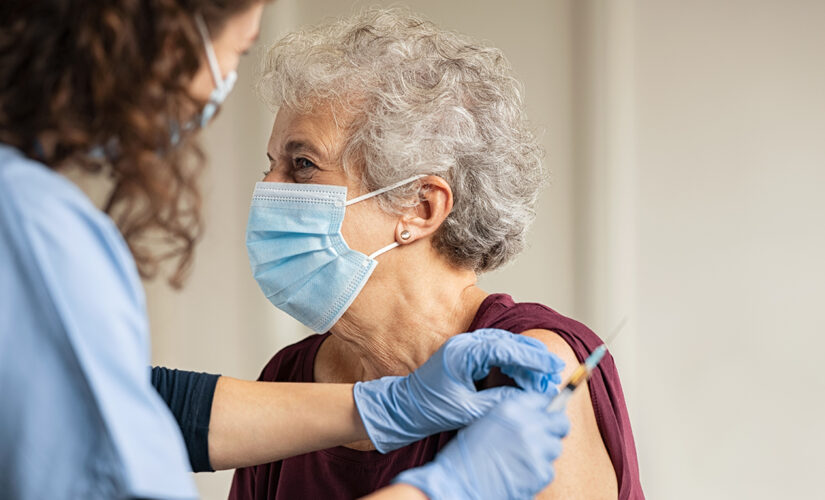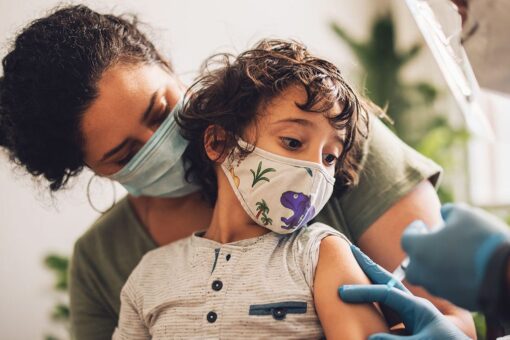Patients who had severe COVID-19 may be twice at risk of dying over the following year, compared to patients who had a mild or moderate case, or individuals not infected by the novel coronavirus, according to a new study.
The alarming findings suggested the increased risk of dying was greater for patients under the age of 65, according to the report published in Frontiers in Medicine. Researchers from the University of Florida stated, “The risk of 12-month mortality among adults under 65 who are hospitalized with COVID-19 is increased by 233% over those who are COVID-19 negative.”
In this Nov. 19, 2002 file photo, ventilator tubes are attached a COVID-19 patient at Providence Holy Cross Medical Center in the Mission Hills section of Los Angeles. (AP Photo/Jae C. Hong, File)
The study also found that common complications due to COVID including respiratory failure and clotting disorders were responsible in only 20 percent of the severe Covid-19 patients’ deaths. These findings suggest that the patients who survived severe cases of COVID-19 were left vulnerable to other illnesses due to an overall deterioration in their health, according to the authors of study. The researchers defined a severe COVID-19 case as a patient who needed to be hospitalized within the first 30 days of testing positive for the infection.
“Since we now know that there is a substantial risk of dying from what would likely be considered to be an unrecognized complication of Covid-19, we need to be even more vigilant in decreasing severe episodes of COVID-19,” Professor Arch Mainous of the University of Florida who is the lead author of the study said in a news release.
OMICRON DETECTED IN CALIFORNIA, FIRST CASE IN THE US, OFFICIALS SAY
The investigators noted that individuals who had mild or moderate COVID-19 cases did not have an increased chance of death compared with those who were not infected with COVID-19. The authors stated in their report that this suggests the importance of reducing the chances of developing a severe case of the disease through vaccination.
Wealthier people were more likely to engage in “self-protective behaviors” like social distancing and wearing a mask in the early stages of the COVID-19 pandemic.
(iStock)
“Taking your chances and hoping for successful treatment in the hospital doesn’t convey the full picture of the impact of Covid-19. Our recommendation at this point is to use preventive measures, such as vaccination, to prevent severe episodes of Covid-19,”Mainous said in a news release.
OMICRON: WHAT ARE THE VARIANT’S SYMPTOMS?
The Florida researchers looked at electronic health records of 13,638 patients within the University of Florida health system who took a Polymerase Chain Reaction (PCR) test for Covid-19 between 01/01/2020 and 06/30/2020. Patients were at least 18 years and older. Of those included in the study, 178 patients were defined as having severe cases of Covid-19, 246 had mild or moderate Covid-19 cases and the rest of the group tested negative for SARS-CoV-2. The researchers tracked the outcomes of the cohort over a period of 12 months.
General practitioner vaccinating old patient in private clinic with copy space. Doctor giving injection to senior woman at hospital. Nurse holding syringe and using cotton before make Covid-19 or coronavirus vaccine.
The authors pointed out that since nearly 80% of the downstream deaths among patients with severe COVID-19 were from causes not related to common complications from a novel coronavirus infection such as respiratory or cardiovascular events, findings suggest that COVID-19 has a significant insult both biologically and physiologically.
“It is clear that prevention of significant COVID-19 infection is the most effective way to decrease the risk of death following COVID-19. Mitigation strategies like masking, physical distancing and improved ventilation are useful strategies to prevent a COVID-19 infection,” the authors said in the published report.
Dr. Aaron Glatt, who is a spokesperson for the Infectious Diseases Society of America, was not connected to the study but commented to Fox news about the findings. “Covid-19 has many potential adverse effects on different systems in the body and we do not fully understand all of the ramifications. Long COVID and persistent illness may lead in some to severe consequences.”
CLICK HERE TO GET THE FOX NEWS APP
Glatt, who is also Chief of Infectious Diseases at Mount Sinai South Nassau in New York, told Fox news, “People need to understand that this is a very serious illness (even if you survive it), and that is why we strongly advocate that people get vaccinated and at the appropriate time get a booster shot.”




